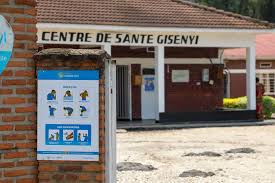
By Gabriel Ayeni
Rwanda declared the end of its Marburg Virus Disease (MVD) outbreak on December 20, 2024, in a ceremony organized by the Ministry of Health and the World Health Organization (WHO). This announcement marked a significant moment of relief and triumph for the nation, reflecting the power of collective action in overcoming one of the most challenging public health crises Rwanda has faced.
The outbreak, confirmed on September 27, 2024, in Kigali, was Rwanda’s first major experience with Viral Hemorrhagic Fever (VHF). Despite the high stakes, the country mounted an impressive response. Through rapid detection, containment, and clinical management, 51 out of 66 confirmed cases recovered, resulting in a case fatality rate (CFR) of 22.7%—notably lower than the typical 24%- 88% range observed in similar outbreaks, underscoring the effectiveness of Rwanda’s coordinated efforts.
“This is an important milestone for Rwanda’s public health system”, said Hon. Sabin Nsanzimana, Rwanda’s Minister of Health.
“We have reached this point because of the dedication of our healthcare workers, the government, and our partners, whose seamless collaboration and swift, coordinated action made it possible to contain the outbreak effectively.” he added. Sabin Nsanzimana.
Under the government’s leadership and in coordination with WHO and other development partners, UNICEF provided immediate support to the implementation of the National Marburg Response Plan. Key contributions included:
. Community-based surveillance. Over 55,000 Community Health Workers (CHWs) received training on community-based surveillance for Marburg, and more than 25,000 CHWs were supported to participate in the active case finding across 15 districts.
. Risk Communication and Community Engagement (RCCE): UNICEF supported MoH in developing the Marburg RCCE Action Plan, communication materials, and key messages and their distribution through media, social media and community engagement, reaching over 3 million population. In partnership with Red Cross Rwanda, over 50,000 community workers were trained on and engaged in Marburg risk communication, childcare and violence prevention, and Psychological First Aid (PFA). Quantitative and qualitative data collection and analysis on knowledge, attitude and behaviours on Marburg helped design the most effective RCCE strategies.
Mental Health and Psychosocial Support (MHPSS). UNICEF provided technical leadership in promoting MHPSS services, raising awareness about its importance during health emergencies. Initial steps were taken to strengthen mechanisms and build human resource capacity in MHPSS services nationwide.
Continuity of Services. UNICEF supported the government in ensuring the continuity of basic services such as immunization, nutrition, education, and child protection. In collaboration with the Ministry of Local Governance, families affected by Marburg received one-time cash support to meet their immediate needs.
Infection Prevention and Control (IPC) and water, sanitation, and hygiene (WASH). 78 health workers were trained on IPC. UNICEF provided essential IPC and WASH supplies worth US$872,000 to health facilities, communities, and schools.
The success of the Marburg response highlights the strength of partnerships. UNICEF Headquarters provided an emergency loan of US$2 million from the UNICEF Emergency Programme Fund, enabling a timely response. Contributions from donors, including USAID, the UK Foreign, Commonwealth & Development Office (UK-FCDO), and the Mastercard Foundation, were instrumental in supporting interventions across multiple response pillars.
As the Minister of Health emphasized, documenting the best practices and lessons learned from this outbreak is essential for enriching global health knowledge and enhancing Rwanda’s preparedness for future emergencies. Sustained investments in health systems are crucial to achieving stronger, more resilient communities capable of withstanding emerging and re-emerging health threats.
UNICEF congratulates the Government and people of Rwanda for their remarkable achievement in containing the country’s first Marburg Virus Disease outbreak. As a trusted partner, UNICEF remains committed to supporting Rwanda in building robust health systems and safeguarding public health for the future. (End)
